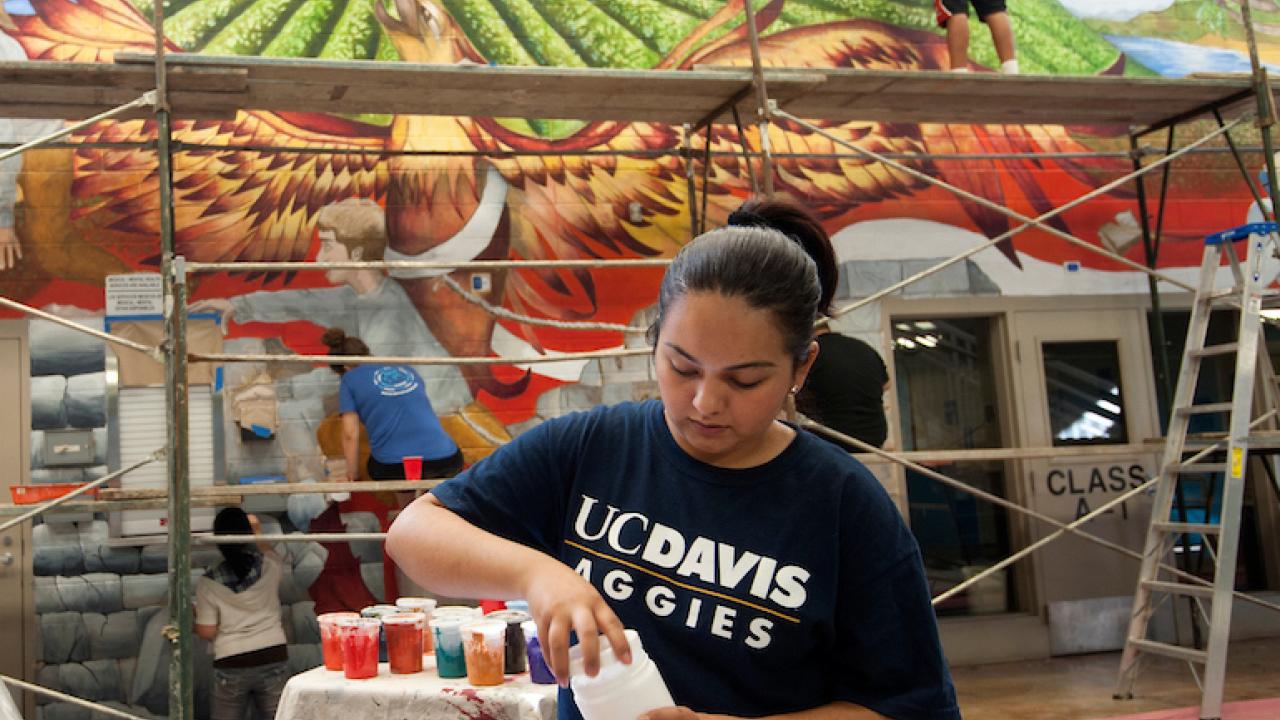
Writing Our HSItory
A project dedicated to UC Davis Pioneras/os
As part of today's University of California HSI Showcase, the Office of Academic Diversity, a unit of the Vice Chancellor's Office of Diversity, Equity and Inclusion, which directs our Hispanic Serving Institution Initiative (HSI-I) published the first articles in its "Pioneras/os Project" series dedicated to telling the story of our journey to becoming an HSI.

The University of California, Davis will soon reach the enrollment threshold necessary to apply for designation as a Hispanic Serving Institution (HSI) with the Department of Education. This will be a historic moment for UC Davis, one that will see the culmination of many years of hard and deliberate work. This project provides a means to communicate about the past and promise of our journey to becoming an HSI.
For decades, Chicanx/Latinx students, faculty, and staff at UC Davis have worked to make the campus more accessible and responsive to the needs of its historically marginalized members.
Starting more than a half-century ago, Chicana/o students, staff, and faculty at UC Davis began to organize for Chicana/o Studies, into groups for self-help and advocacy work, and to hold the university accountable for improving the educational opportunities available to the state’s marginalized communities. This project begins to tell those stories. From a symposium organized by the United Mexican American Students (UMAS) in 1968, the adoption of the MEChA model–the first in the nation, to helping defeat the anti-farmworker bill, Proposition 22 in 1972, UC Davis has been a leader, a Pionero. It is imperative that we document that story, share it with the campus community, and use it to motivate further change.
We invite you to explore some of the first pieces in this effort:
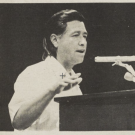
Read our newest article
March 28, 2023–In honor of his day of recognition, read about the several times Cesar Chavez spoke at UC Davis.

1-"Writing Our HSItory," IntroductionIntroducing the history and what it means according to ED to be an HSI. A note on terminology. |
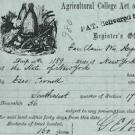
8-Context: The Morrill Land Grant Act of 1862A brief description of the land-grant act that helped establish UC. Explain the tension over its intent and the dispossession of Natives on which it was funded. |
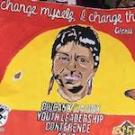
2-"Writing Our HSItory," The ProjectA brief description of this entire project, its rationale and goals. |
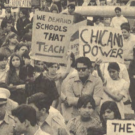
9-Context: Chicana/o Student Protests in the 1960sThe protests against discrimination in the 1960s that began to galvanize a new generation of Mexican American activists, especially students. Influence of World War II and the Civil Rights Movement. |
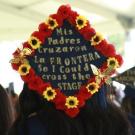
3-Our HSI VisionHSI Director Lina Mendez describes what it means to UCD to be an HSI and how that influences or actions and priorities. |
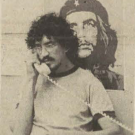
10-Chicanas/os Begin to Organize at UC DavisFollowing demands made at 1968 symposium by students for a Chicana/o Studies program. Brief mention of D-QU and Jesus Leyba. Second theme of UMAS symposium, the demand for culturally relevant curriculum and people. |
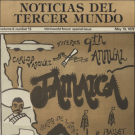
4-"Writing Our HSItory," SourcesA brief overview of the numerous primary sources available to begin writing this history. |
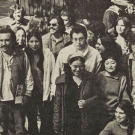
11-Chicana/o Student OrganizationsThe third in the series of articles exploring the themes highlighted during the UMAS symposium. Brief highlight of MEChA, Clinica Tepati, and orgs at law school. |

5-UMAS Sponsors SymposiumA brief account of the themes that were highlighted during the symposium that are then used to introduce some of the early material uncovered thus far. |
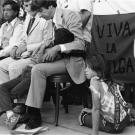
12-Supporting FarmworkersFinal article in series exploring the themes highlighted during the 1968 UMAS symposium. A brief description of the some of the ways in which UCD supported farmworkers during the 1970s. |
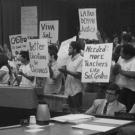
6-Context: Chicanas/os & Higher Education in CaliforniaThis is the first article exploring the themes highlighted in the UMAS symposium, the legacy of discrimination and segregation in California public schools that made it exceedingly difficult for Chicanas/os to pursue a college degree. |
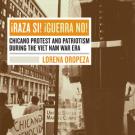
13-Carnales HomeThe importance of the Chicano Moratorium for the movement and student organizers; highlighting Lorena Oropeza’s book. |
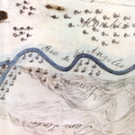
7-Context: Continental ColonialismA brief account of the dispossession of Native Americans and people of Mexican descent as the US incorporated western territories. Understanding the second class citizenship of non-whites in West. |
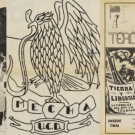
Explore our HSI Timeline |
